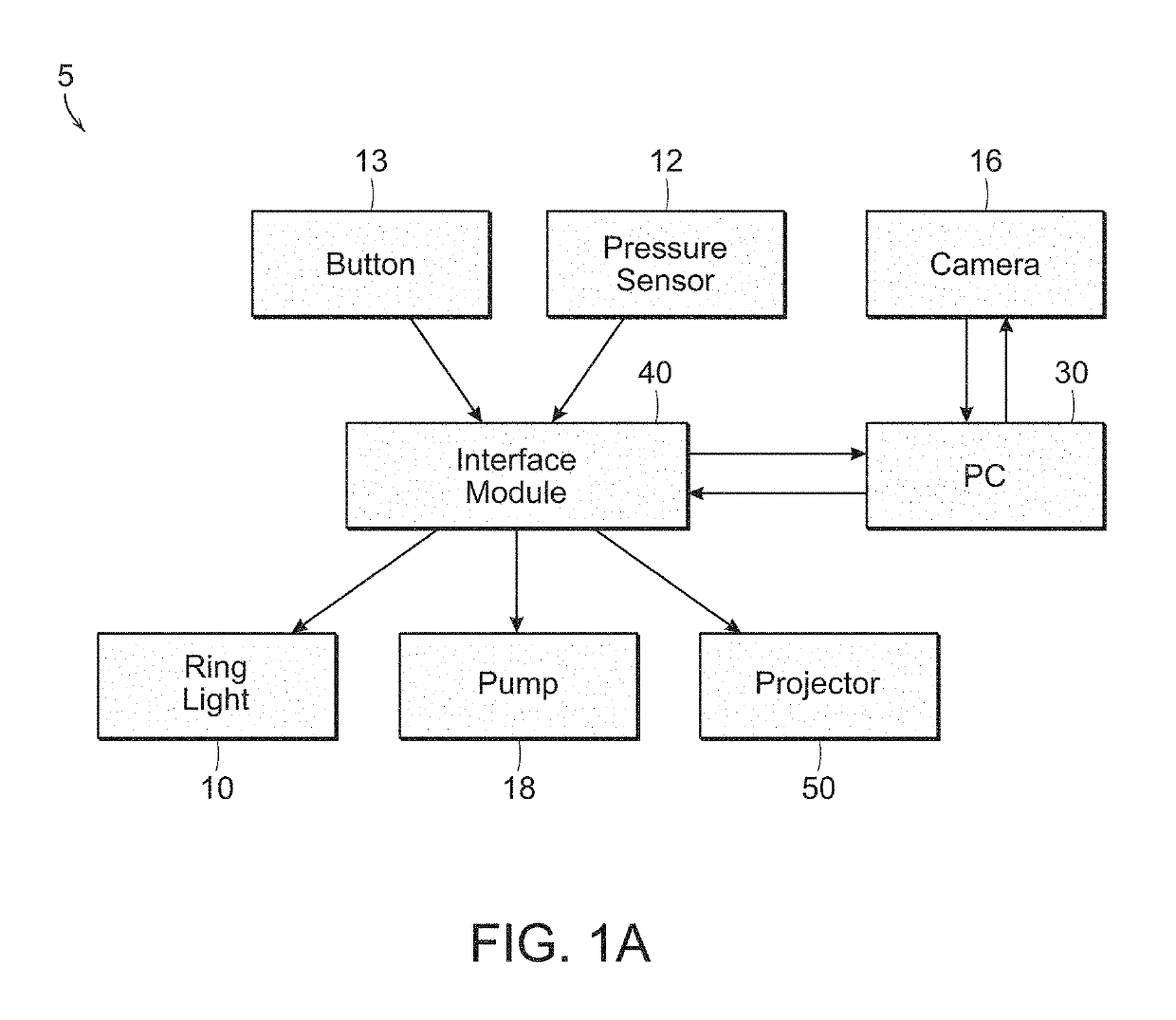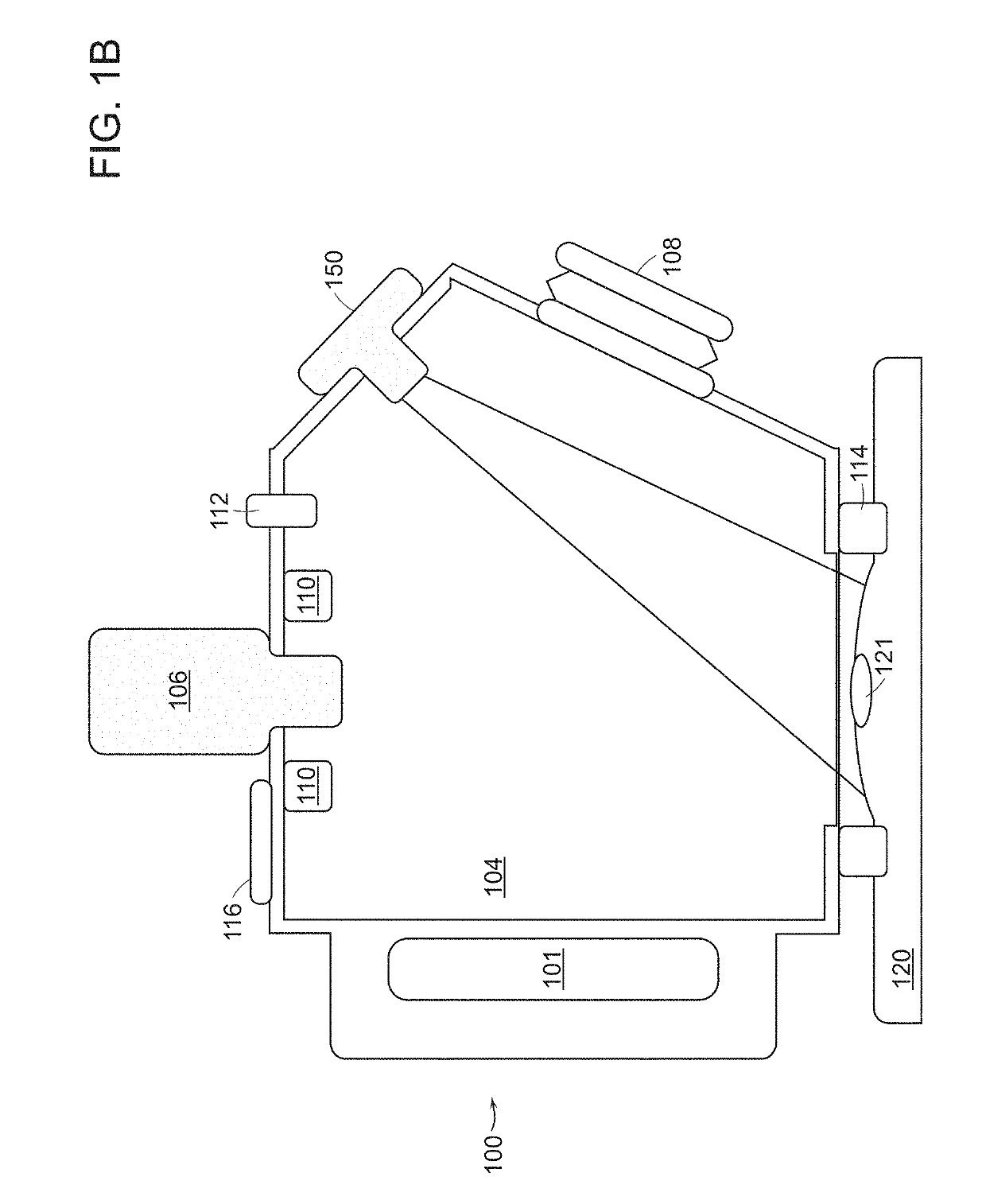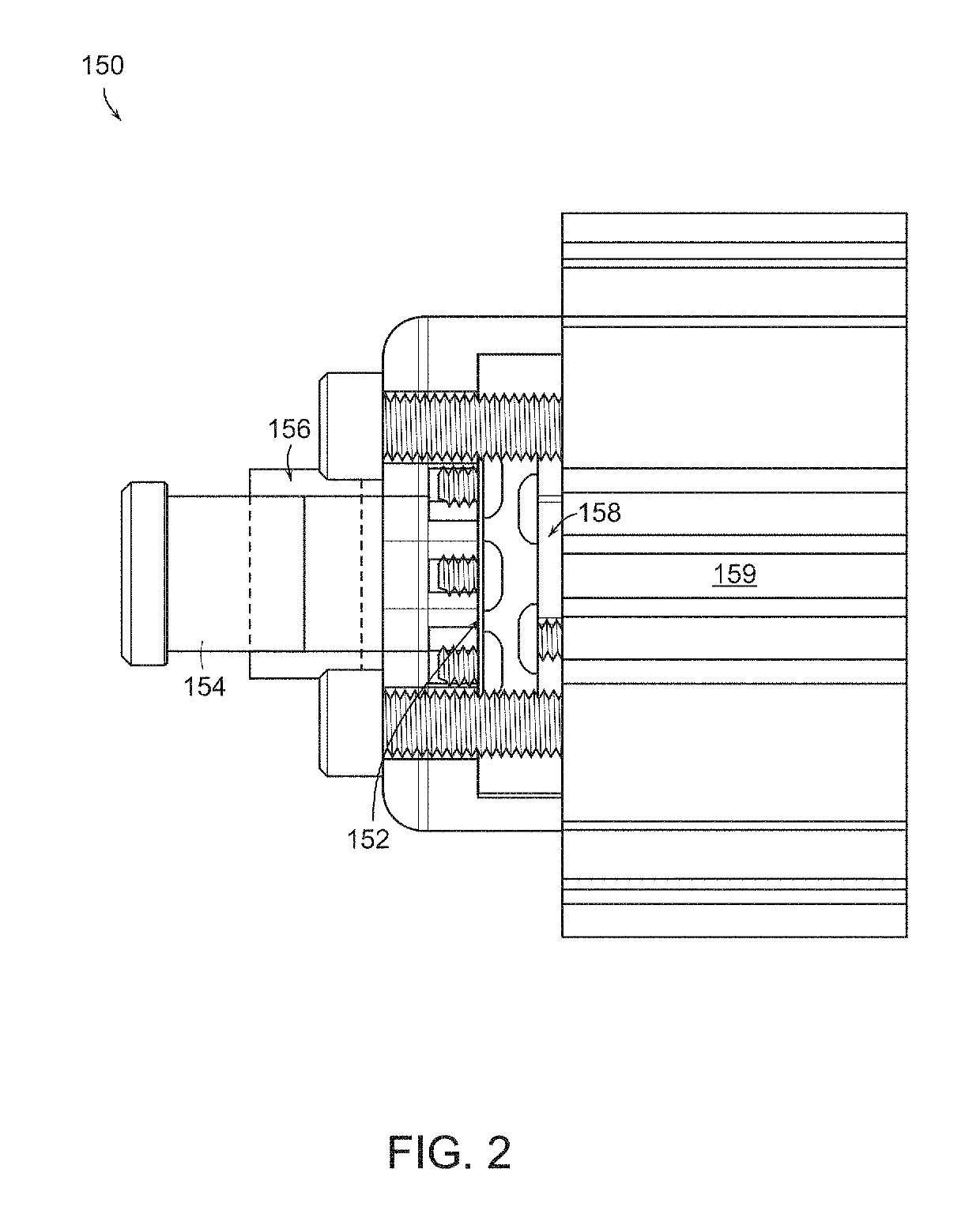Systems and methods for tissue stiffness measurements
a tissue stiffness and measurement system technology, applied in the field of tissue stiffness measurement systems and methods, can solve the problems of cancer development, 75% of skin cancer deaths, and much more deadly, and achieve the effect of accurate determination of excision size, time-consuming and labor-intensiv
- Summary
- Abstract
- Description
- Claims
- Application Information
AI Technical Summary
Benefits of technology
Problems solved by technology
Method used
Image
Examples
Embodiment Construction
[0056]In this application, reference is made to measurements of stiffness and other properties of skin tissue. However, it will be understood by one skilled in the art that the systems and methods of the present invention may be used to perform the same or similar measurements for any accessible tissue.
[0057]According to the World Health Organization, 3 million non-melanoma skin cancers and 132,000 melanoma skin cancers afflict people every year worldwide; as mentioned above, this translates to one out of every three cancers. One out of five Americans will develop skin cancer at some point in his or her life. Identifying early-stage skin cancer before it has metastasized is critical, as prompt excision of the lesion nearly guarantees the patient's recovery. Skin cancer is the only form of cancer that has seen a steady increase in incidence and mortality rates over the past 30 years.
[0058]Skin cancer generally develops in the outermost layers of skin, making a possible malignant tumo...
PUM
 Login to View More
Login to View More Abstract
Description
Claims
Application Information
 Login to View More
Login to View More - R&D
- Intellectual Property
- Life Sciences
- Materials
- Tech Scout
- Unparalleled Data Quality
- Higher Quality Content
- 60% Fewer Hallucinations
Browse by: Latest US Patents, China's latest patents, Technical Efficacy Thesaurus, Application Domain, Technology Topic, Popular Technical Reports.
© 2025 PatSnap. All rights reserved.Legal|Privacy policy|Modern Slavery Act Transparency Statement|Sitemap|About US| Contact US: help@patsnap.com



